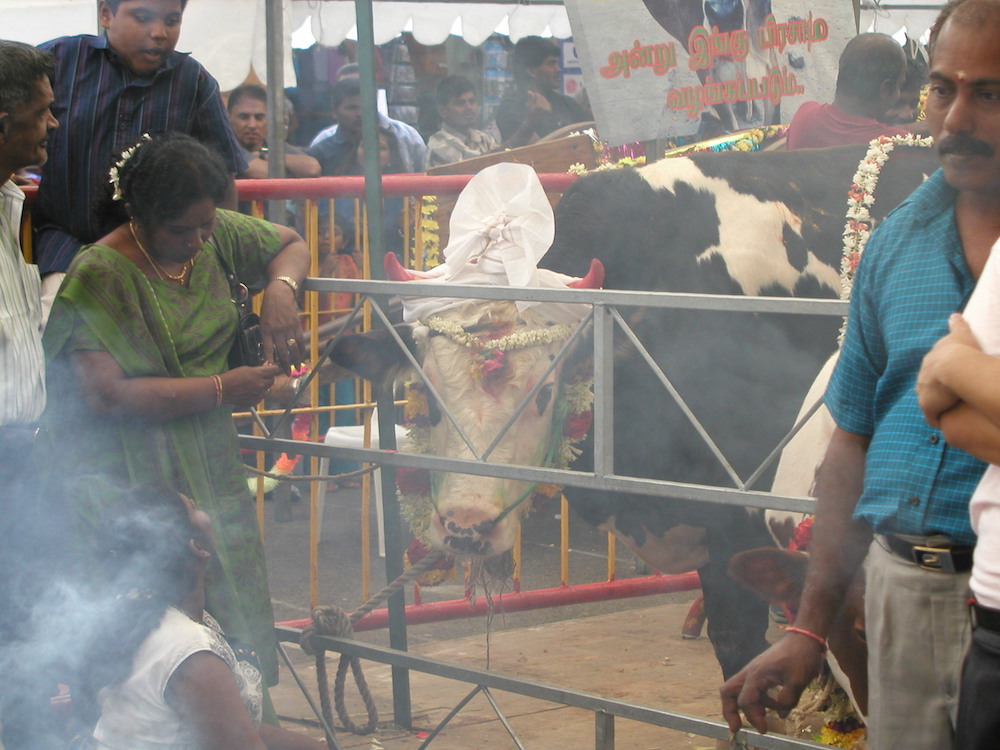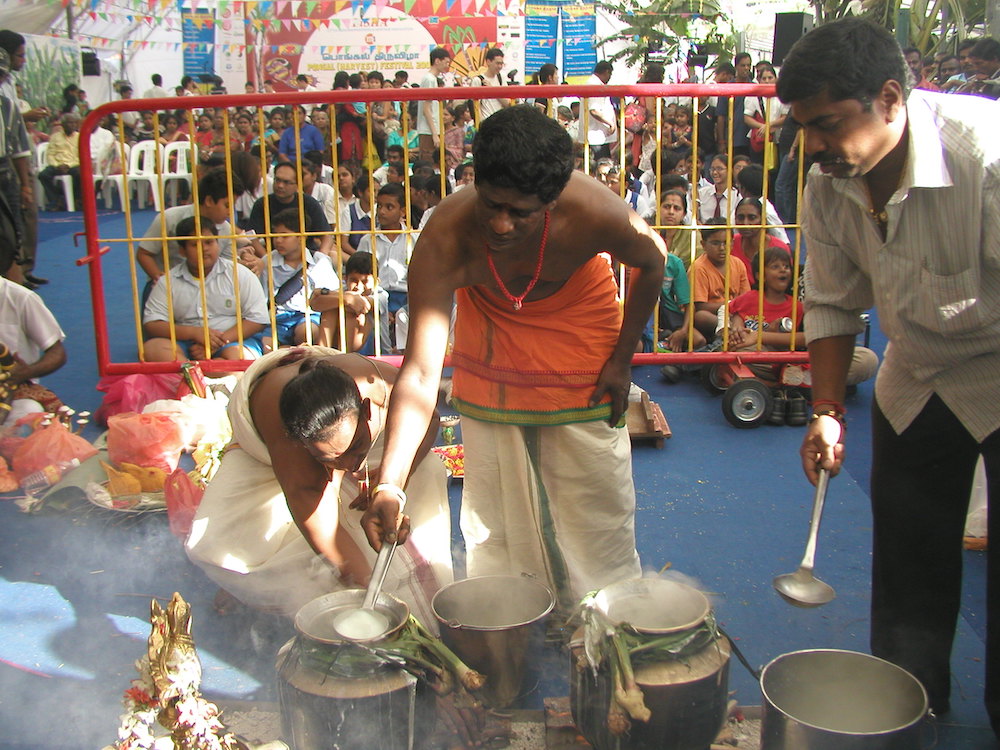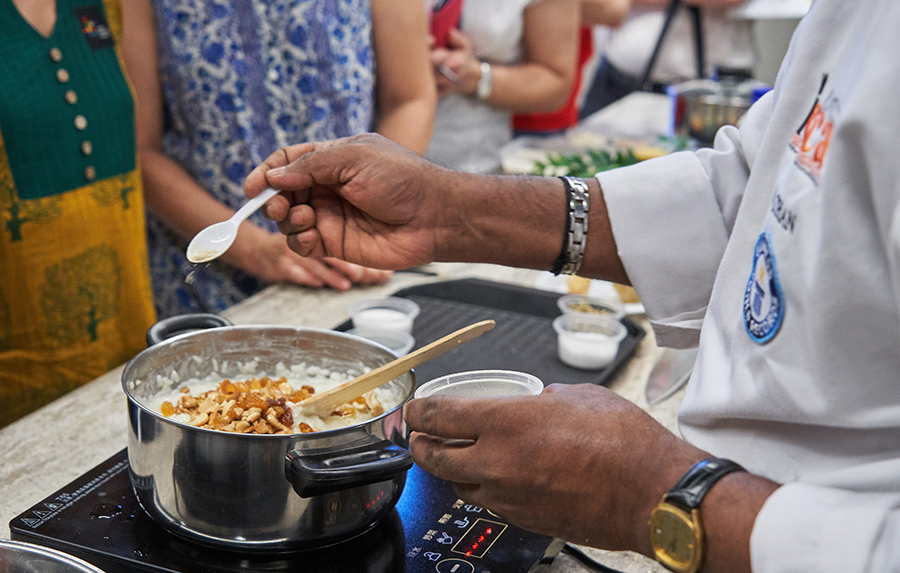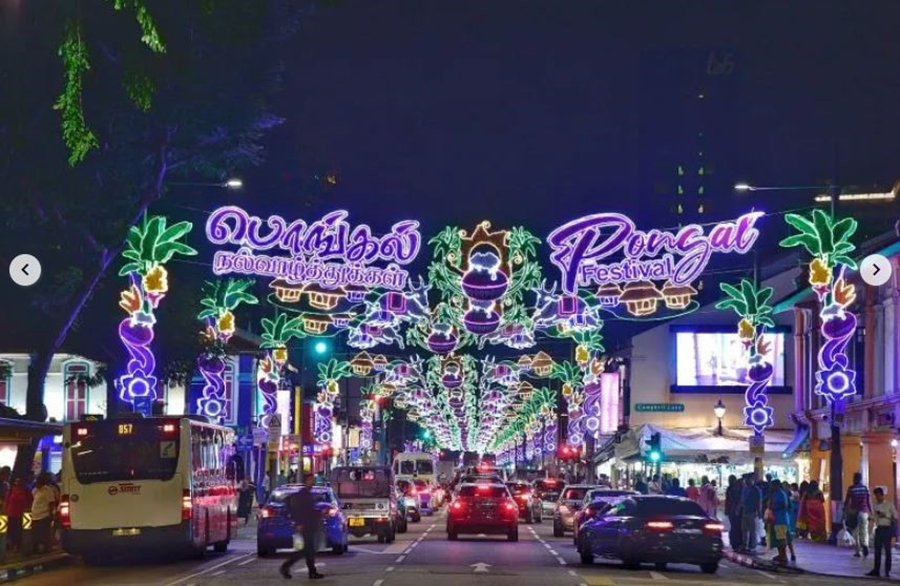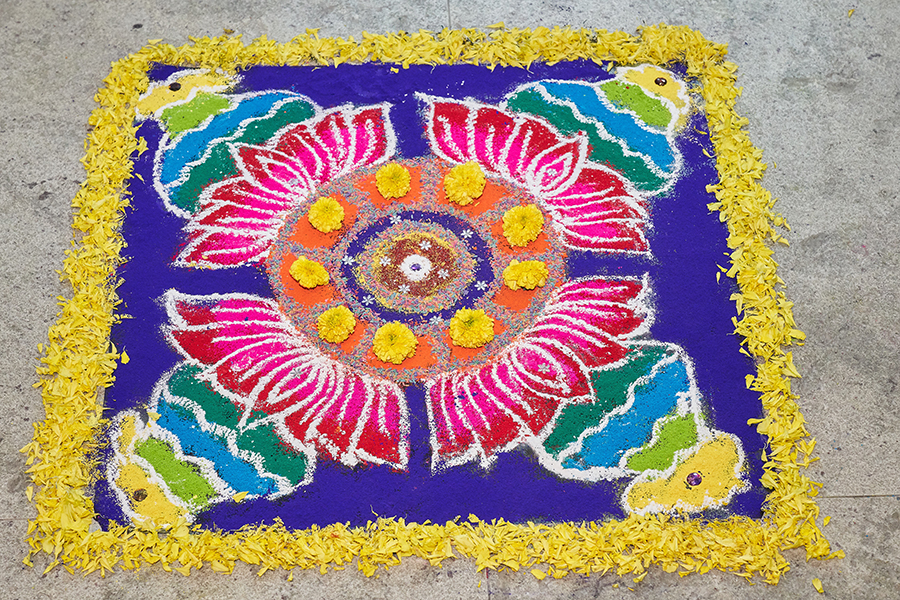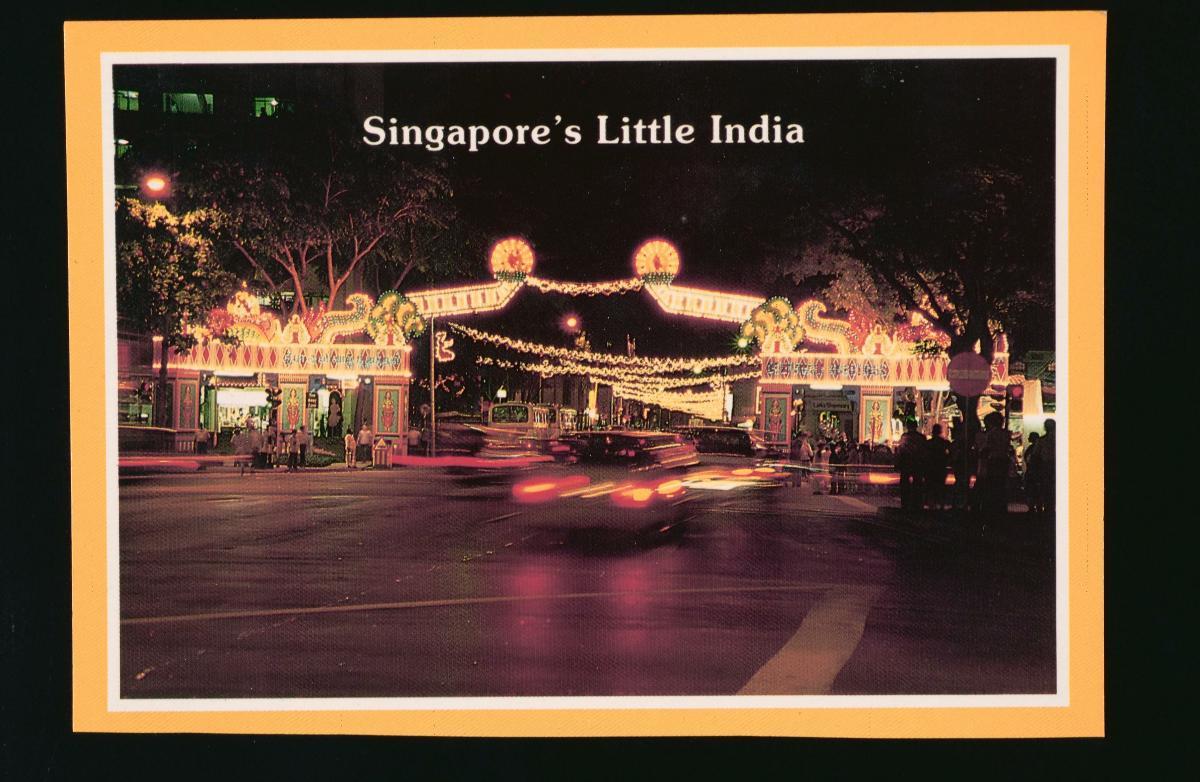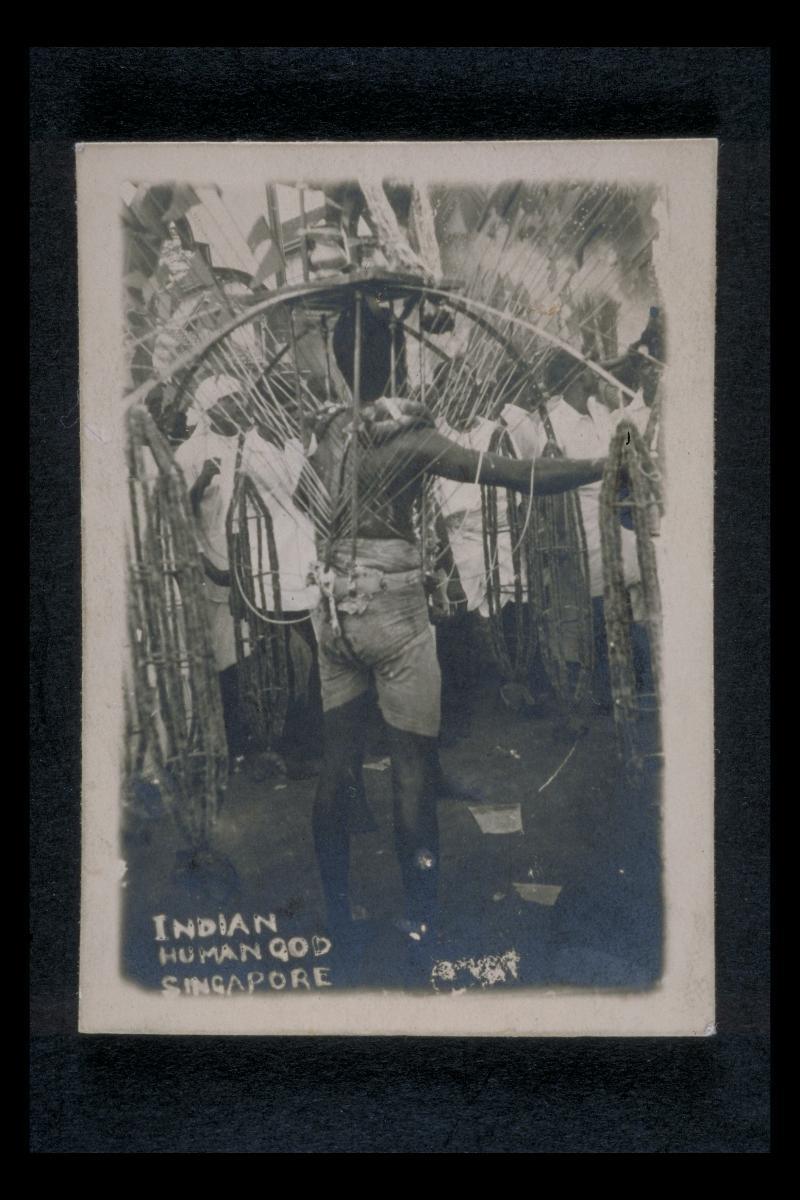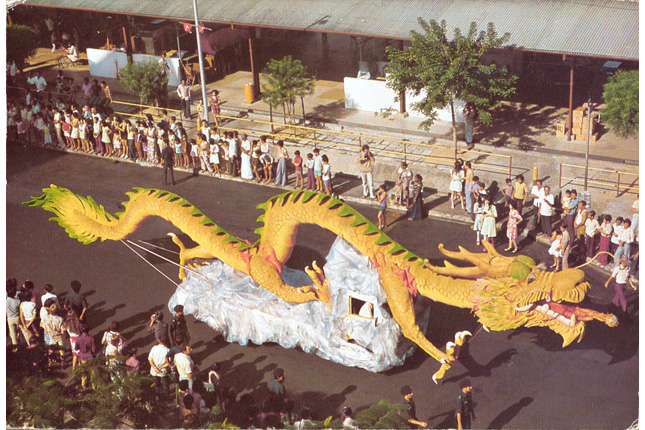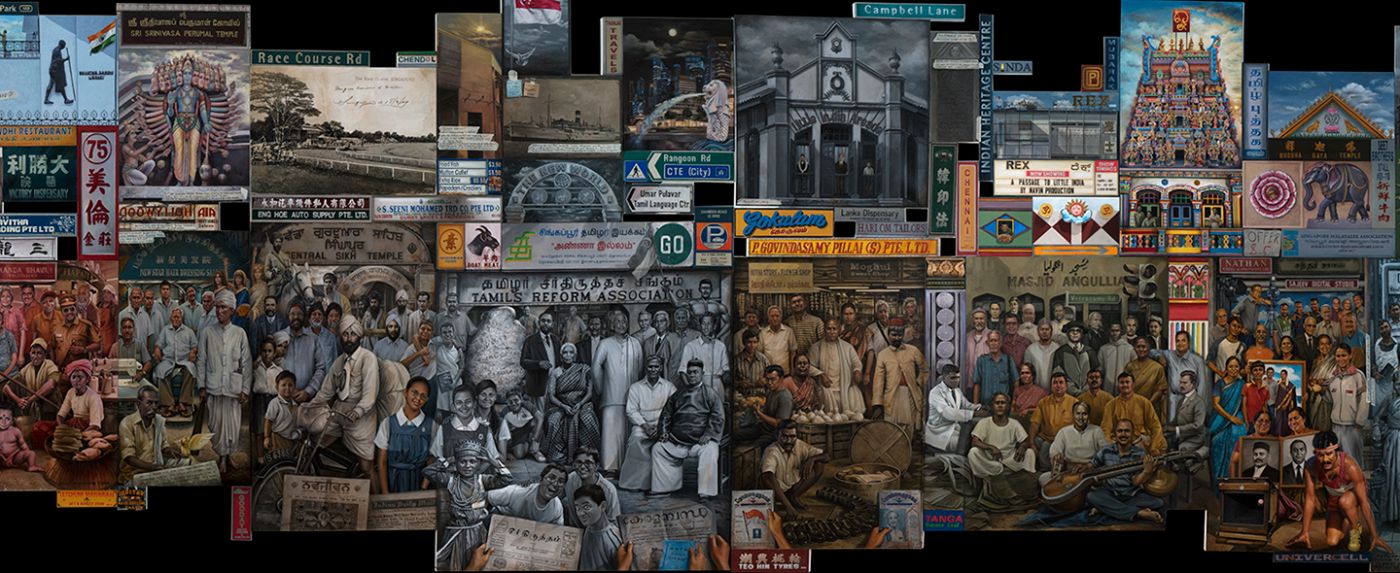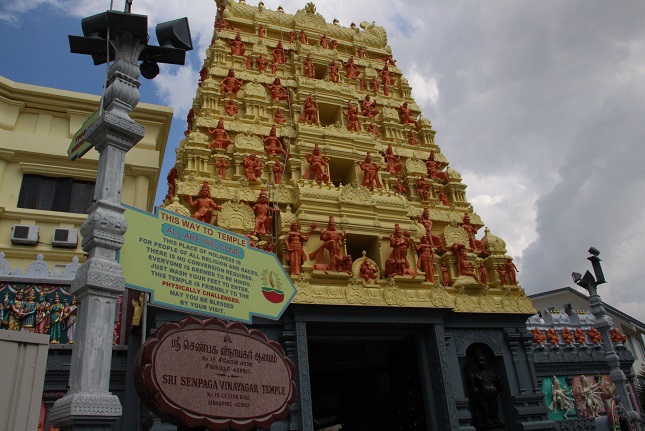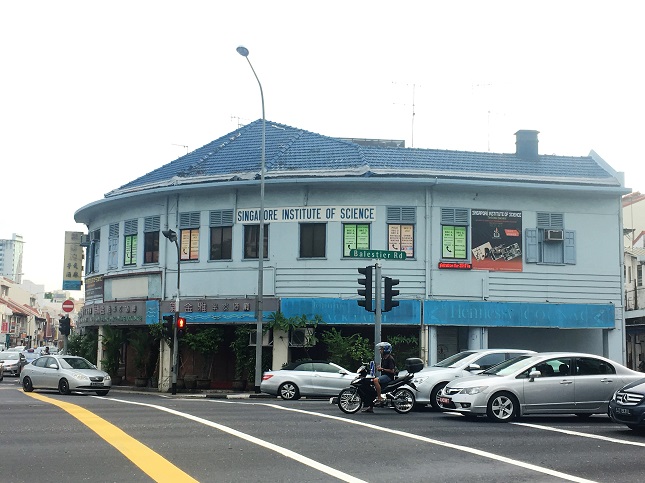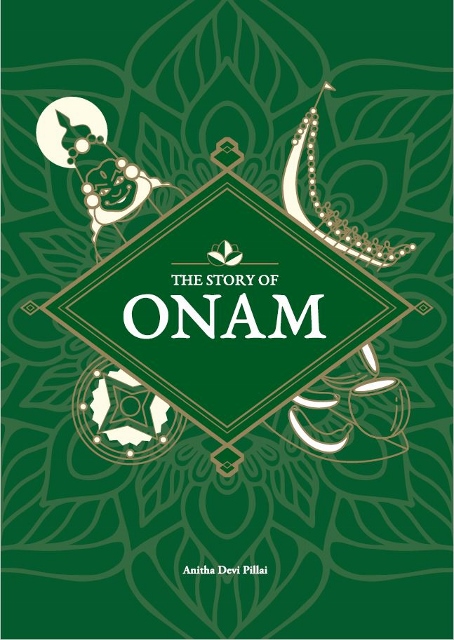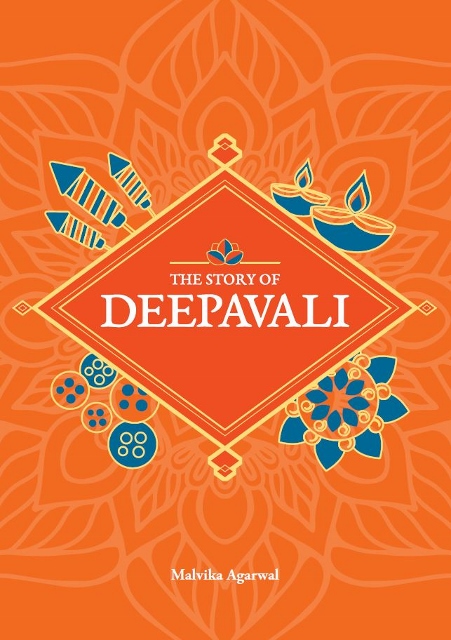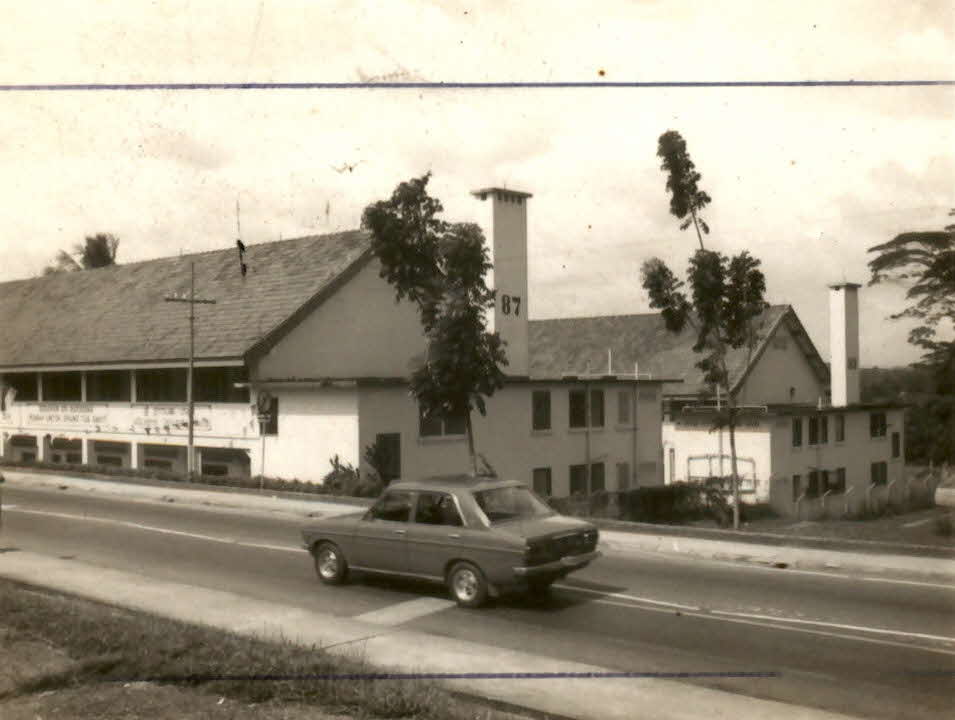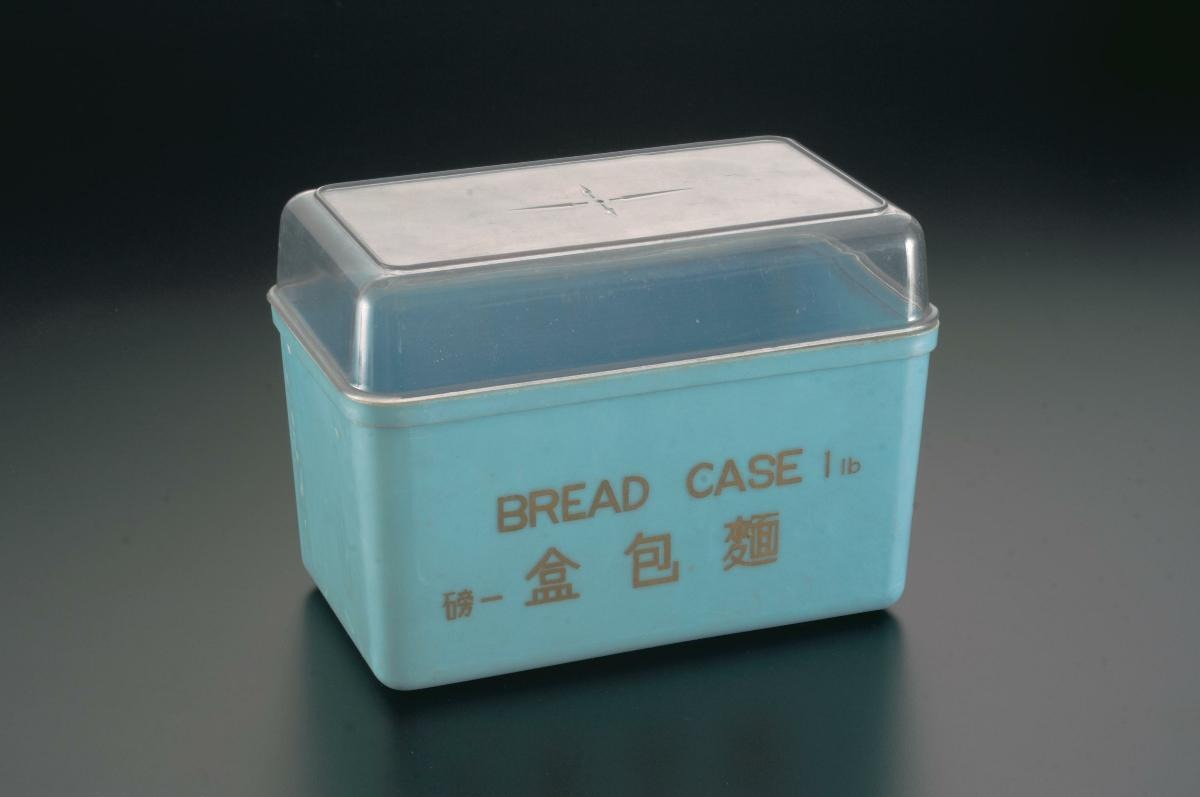Pongal
Pongal is a harvest and thanksgiving festival celebrated by the Tamil community. “Pongal” in Tamil means "boiling over or spill over,” and the festival is a celebration of thanksgiving to the Sun, Mother Nature, and the various farm animals that help to contribute to a bountiful harvest. Celebrated over four days, Pongal usually falls on the 14th or 15th of January each year, and also marks the beginning of the Tamil month called Thai, which is considered an auspicious month – in which another significant festival takes place shortly after Thaipusam.
Geographic Location
The observance of Pongal is believed to be an ancient practice dating to the Sangam Age from 200 BC to 300 AD. Pongal is observed by Tamils in the state of Tamil Nadu in South India and by the Tamil diasporic community around the world, including those in Sri Lanka, Malaysia, Mauritius, South Africa, United States of America, Canada, Australia, and Singapore.
Communities Involved
In Singapore, Pongal is mainly celebrated by the Tamil community. In recent years, various Tamil and Indian cultural organisations such as the Little India Shopkeepers and Heritage Association (LISHA) and the Indian Heritage Centre have organised events such as bazaars, street light-ups along Serangoon Road, cooking demonstrations, and a mini farm featuring cows, which are traditionally honoured during the festival, for the wider community to observe and enjoy as well.
Associated Social and Cultural Practices
The four-day festival starts with Bhogi Pongal, and the day is observed by tidying up the home and throwing away old clothes and unwanted belongings, as a symbol of new beginnings. Additionally, prayers are offered to Indra, a deity associated with the sky, lightning, thunder, and rains. The second day, Surya Pongal, falls on the first day of the Tamil month Thai, and is when the main ritual of preparing the Pongal dish is observed. On this day, colourful decorative floor patterns called kolam or Rangoli are drawn at the entrance of homes and temples, and each household cooks the Pongal dish, which is a pot of fresh rice with milk, cardamom, and sugar at dawn in tribute to Surya, the Sun God. As the milk boils freely over the pot, family members rejoice by calling out: “Pongalo Pongal,” as the act symbolises prosperity, good fortune, and a good harvest in the year ahead. Offerings of the Pongal dish and sugarcane are then typically made in the household prayer room before being distributed to the family. The third day, Mattu Pongal, is a day for honouring cattle for the crucial role they play in the harvest season. On this day the cattle are decorated with paint, flowers and bells, are allowed to roam free, and are fed with sweet rice and sugar cane. During the final day, Kaanum Pongal (the word kaanum means "to view") people visit their relatives, friends to enjoy the festive season. On this day, importance is given to the community and to strengthen relationships. Families and friends gather to have a sumptuous meal, and younger members seek the blessings of their elders. Traditionally, while Pongal started as a farmers' festival, it has become a festival for all Tamils transcending origins, professions, and religion.
In Singapore, in addition to the rituals and celebrations observed by individual families, Little India becomes abuzz with festive celebrations. A bustling bazaar selling prayer items, traditional clothes, festive decorations, Indian sugar cane, and other ingredients relevant to the festival are available throughout the lead-up to the festival.
Experience of Practitioner
As President of Thiruvalluvar Tamil Valarchik Kazhakam (an association promoting the teachings of Tamil philosopher Thiruvalluvar), Mr Sivanason Sivabalan has been one of the organisers of Pongal celebrations in Singapore. Since he was young, the celebration of Pongal - both as a harvest festival and the Tamil New Year - has always been a grand affair in his family. While Pongal celebrations in Tamil Nadu span over four days, Mr Sivanason pointed out that celebrations in Singapore are condensed and simplified into just one day.
Present Status
The Little India Shopkeepers and Heritage Association (LISHA) and the Indian Heritage Centre have been involved in organising activities at Campbell Lane at Little India to celebrate Pongal. During the festive season, stalls are set up to display and sell various festive goods related to the festival. Cows are also featured in the festive celebrations at Campbell Lane for visitors to learn about the significance of cattle in this harvest festival.
As Pongal continues to be celebrated by the Tamil community in Singapore, there has also been increased participation by non-Tamils as many Indian and Tamil cultural organisations have opened the celebrations to non-Tamils. This has the effect of raising awareness about the festival and increase in its visibility. The awareness about Pongal continues to grow in Singapore.
References
Reference No.: ICH-033
Date of Inclusion: April 2018; Updated March 2022
References
Krishnan, G.P. 2015. Expressions of Faith in Hindu Festivals: Case Studies from Singapore and Malaysia. Indian and Chinese Immigrant Communities: Comparative Perspectives, p.137.
Mani, A., Pravin Prakash and Shanthini Selvarajan, “Tamil Community and Culture in Singapore”, in Mathew Mathews (ed), The Singapore Ethnic Mosaic: Many Cultures, One People. Singapore: World Scientific, 2017.
Menon, Malvika. “Pongal Festivities,” 2 Jan 2022. The Straits Times. https://www.straitstimes.com/singapore/pongal-festivities-with-cattle-farm-pot-painting-to-kick-off-in-little-india-on-jan-7. Accessed 15 March 2022.
Pillai, Gopinath and Kesavapany K. 50 Years of Indian Community in Singapore, Singapore: World Scientific, 2016.
Seow Bei Yi. “Pongal festival spiced up to draw in the young”, 7 Jan 2016, AsiaOne, www.asiaone.com/singapore/pongal-festival-spiced-draw-young. Accessed on 2 January 2019.
Solomon, John. A Subaltern History of the Indian Diaspora in Singapore. London: Routledge, 2016.
Somaiah, B.C., 2018. Hinduism in Singapore. Encyclopedia of Indian Religions.
Youngman, A., 2010. Celebrating harvest festivals. 5 to 7 Educator, 2010(69), pp.19-23.





